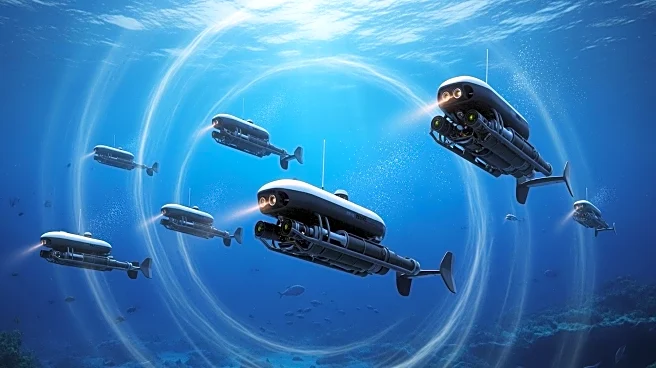What's Happening?
The Monterey Bay Aquarium Research Institute (MBARI) has utilized free-floating biogeochemical profiling robots to study the impact of marine heatwaves on the ocean's carbon storage capabilities. Published
in Nature Communications, the research highlights how these heatwaves disrupt the ocean's ability to transport carbon from surface waters to the deep ocean, where it can be stored long-term. The study involved deploying over 330 robots equipped with advanced sensors to monitor key oceanic properties. These robots, part of the Global Ocean Biogeochemical Array, provide continuous data, offering insights into the ocean's metabolic processes and carbon cycle.
Why It's Important?
The findings underscore the vulnerability of the ocean's carbon storage system to climate-induced changes, such as marine heatwaves. This has significant implications for global carbon management and climate change mitigation strategies. The ability of the ocean to sequester carbon is crucial for regulating atmospheric CO2 levels and mitigating climate change impacts. The study highlights the need for continuous monitoring and advanced technologies to understand and address these challenges effectively.
What's Next?
The continuation of this research is uncertain due to funding challenges, as the current NSF grant supporting the U.S. BGC-Argo fleet is set to expire. Securing additional funding is critical to maintain and expand the monitoring network. Future research may focus on integrating data from robots, satellites, and ships to enhance understanding of oceanic processes and improve climate models.









